Gundari
I am a little reluctant to post this story.
It’s about a soon-to-open exclusive luxury hotel located on the Greek island of Folegandros.
There are still several islands in the Cyclades that would fairly be referred to (usually by the Sunday supplements) as ‘best kept secrets.’
In other words, they are off the beaten track and haven’t been unduly affected by hordes of holidaymakers.
Folegandros is one of those gems, the pace of life there is slower; there are small, unsophisticated restaurants and bars to discover, where local farmers still gather during the evenings, and its handful of small beaches are perfectly uncrowded.
Folegandros is an atmospherically rich and authentically Greek island; I know, I’ve been there, and I love it.
But it really doesn’t take long for ‘best kept secrets’ to become worst kept secrets and the demands of tourism can change the character of a resort forever.
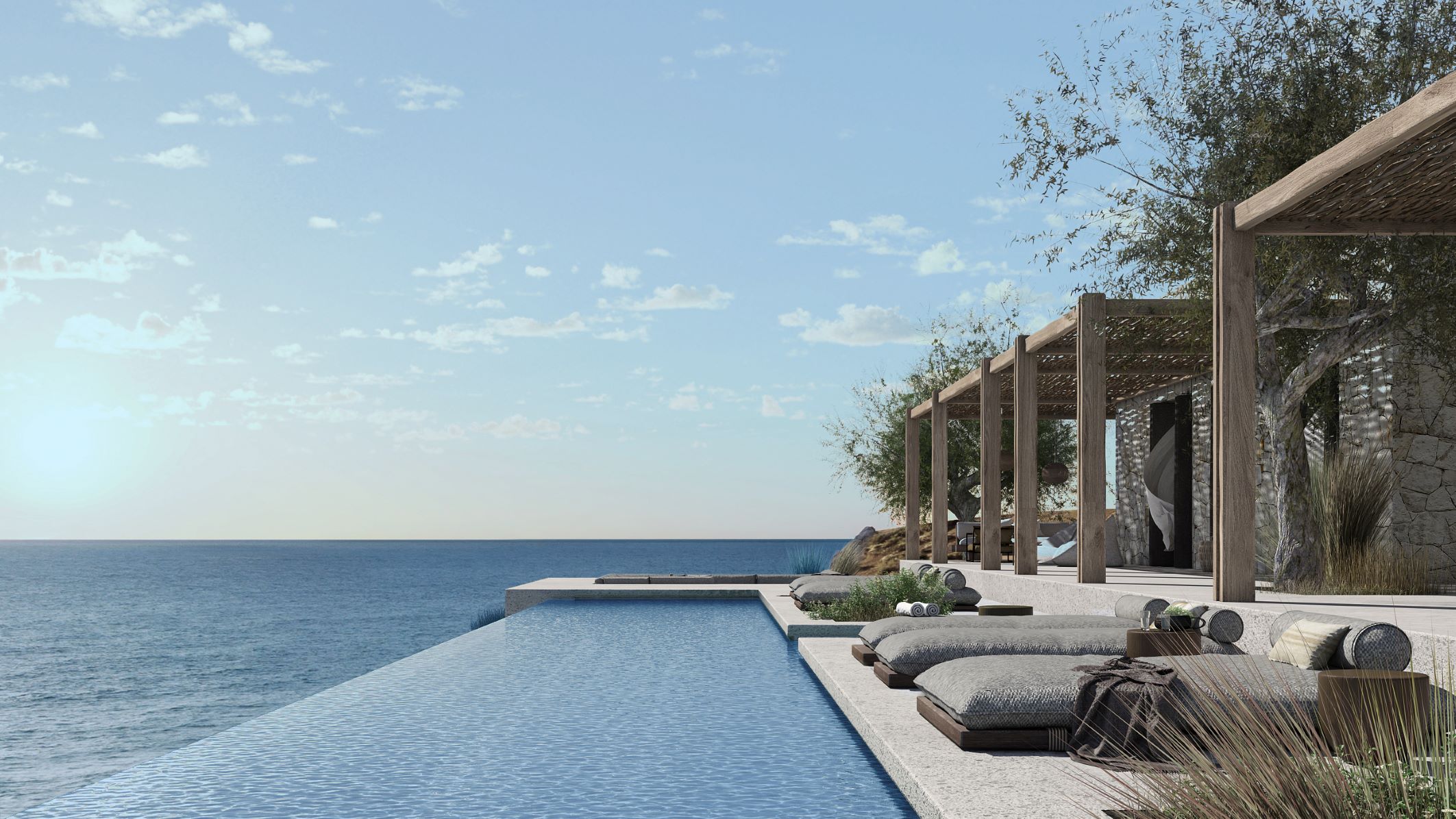
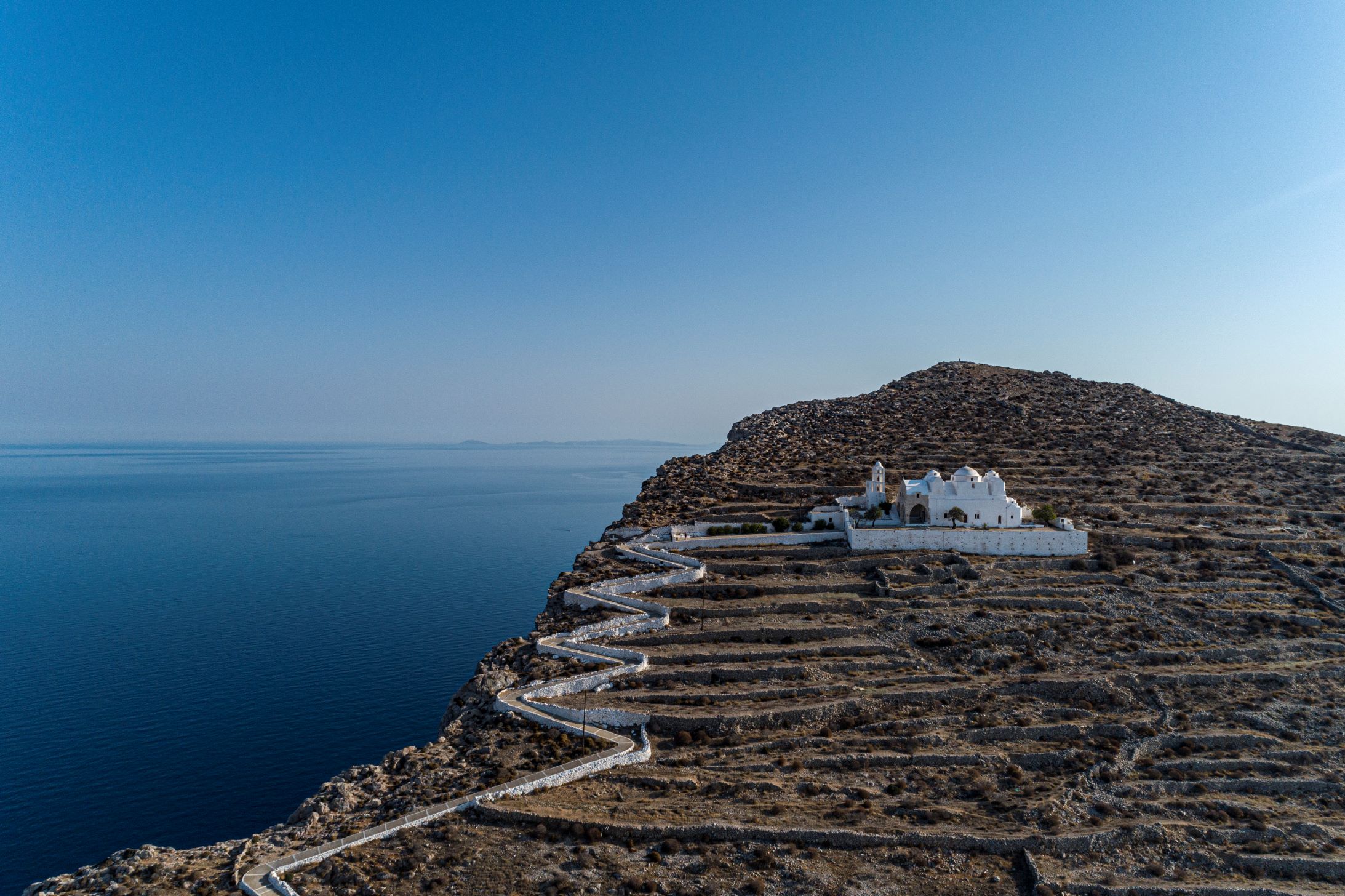
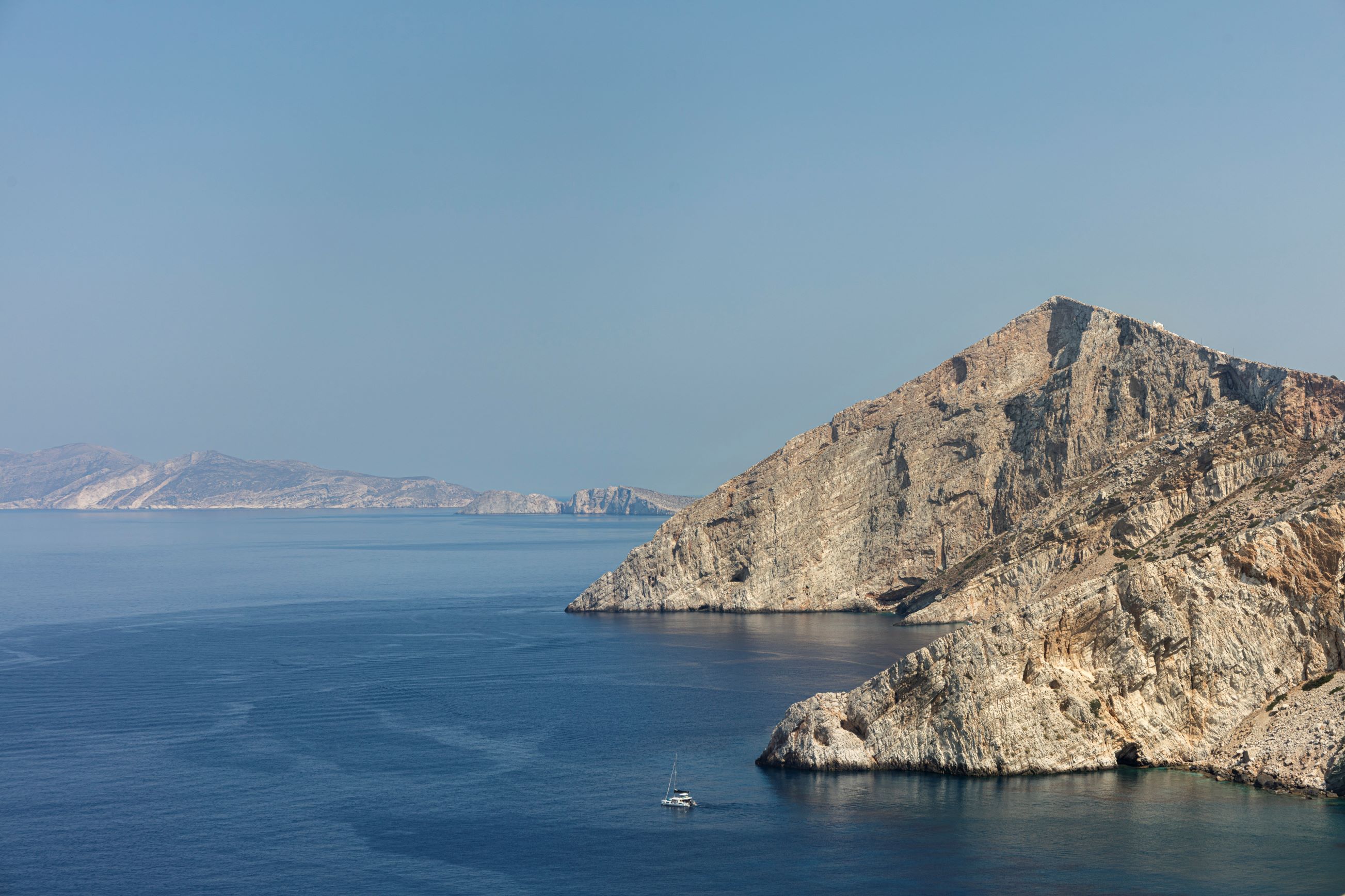
Given the credentials of this new hotel, however, it is feasible that the only change will be for the good.
The hotel is called Gundari.
It’s a new, environmentally friendly property, set within a bird wildlife nature reserve.
It’s small, it’s near to Chora, the island’s main town, and the owner is determined to ensure that its presence will have no adverse effect on the local eco-system.
In fact, it is already a member of EarthCheck Certified, the world’s leading rigorous, science-based environmental certification and benchmarking programme for the tourism industry and it is wholeheartedly committed to protecting a threatened species of bird that is native to the island.
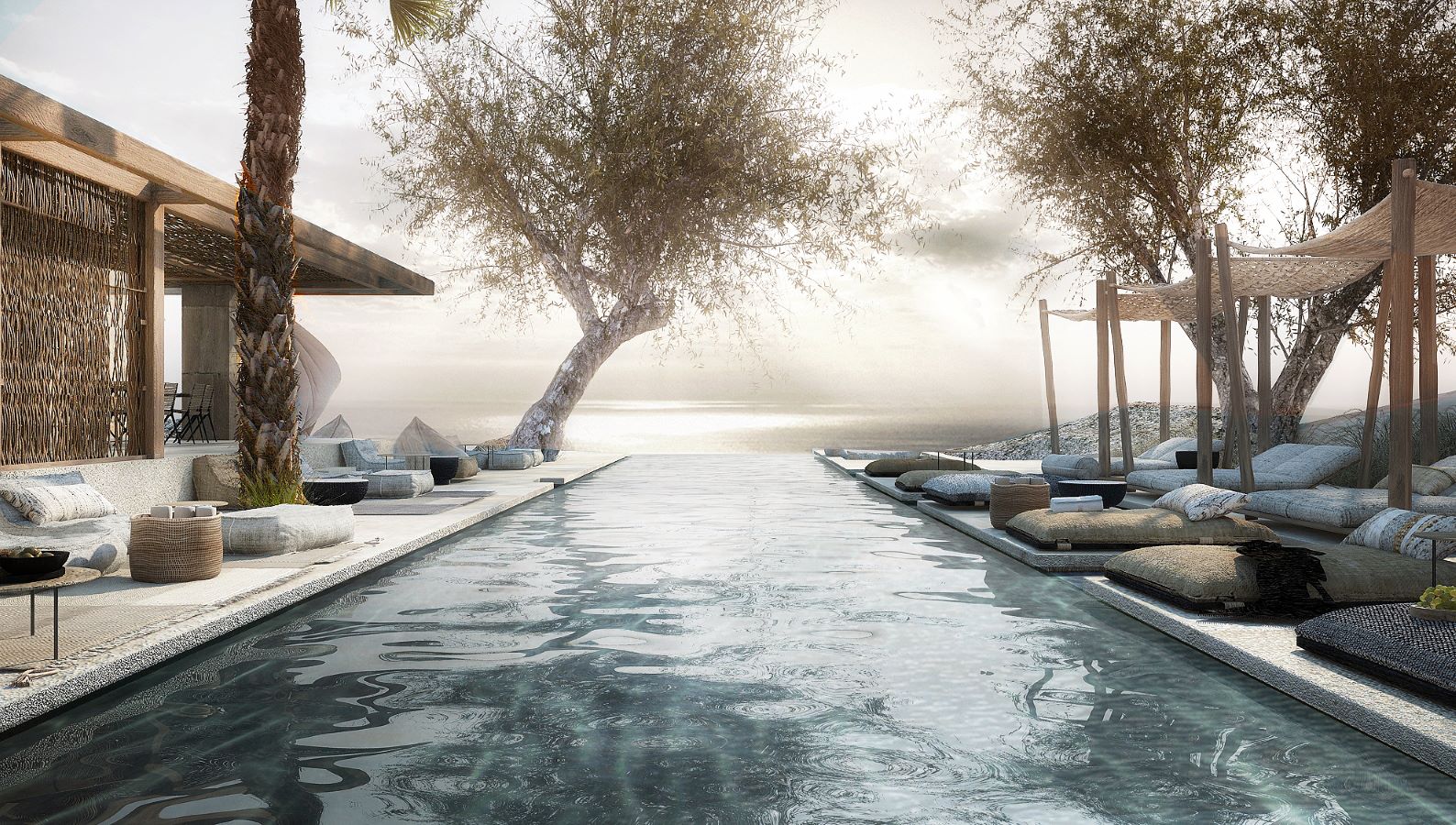
It might just settle quietly into the landscape and provide a small bolthole for those with an environmental conscience who like to get away, far from the madding crowd.
The resort will consist of twenty-seven bioclimatically designed* suites and villas, all with private, solar heated infinity pools which seemingly tumble over the cliff into the Aegean Sea.
Other facilities will include a cliff edge pool with swim up cocktail bar, large gym, and an organic farm.
Acclaimed Athens architectural studio Block722 are behind the design and have harnessed a wealth of natural materials to craft a resort with authentic, Cycladic simplicity.
The gastronomic offering has been lovingly curated by the Michelin-starred chef Lefteris Lazarou (Greece’s very first Michelin star chef), uniting the fruits of both sea and land with a true passion for refined Greek cuisine.
Many ingredients will be sourced from Gundari’s organic farm, offering a true farm to plate experience.
There will be three dining spaces – including the main restaurant Orizon – and two bars.
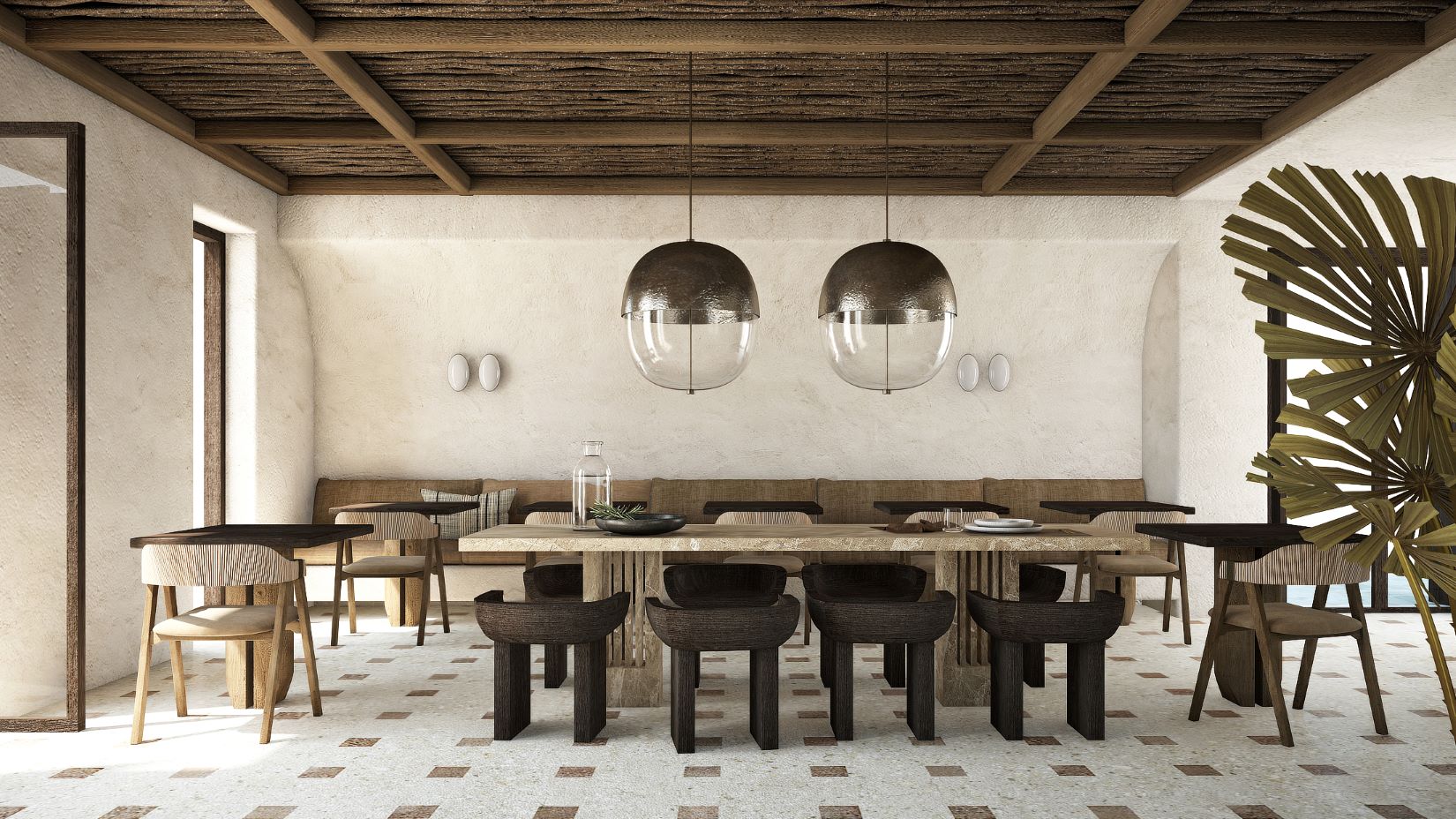
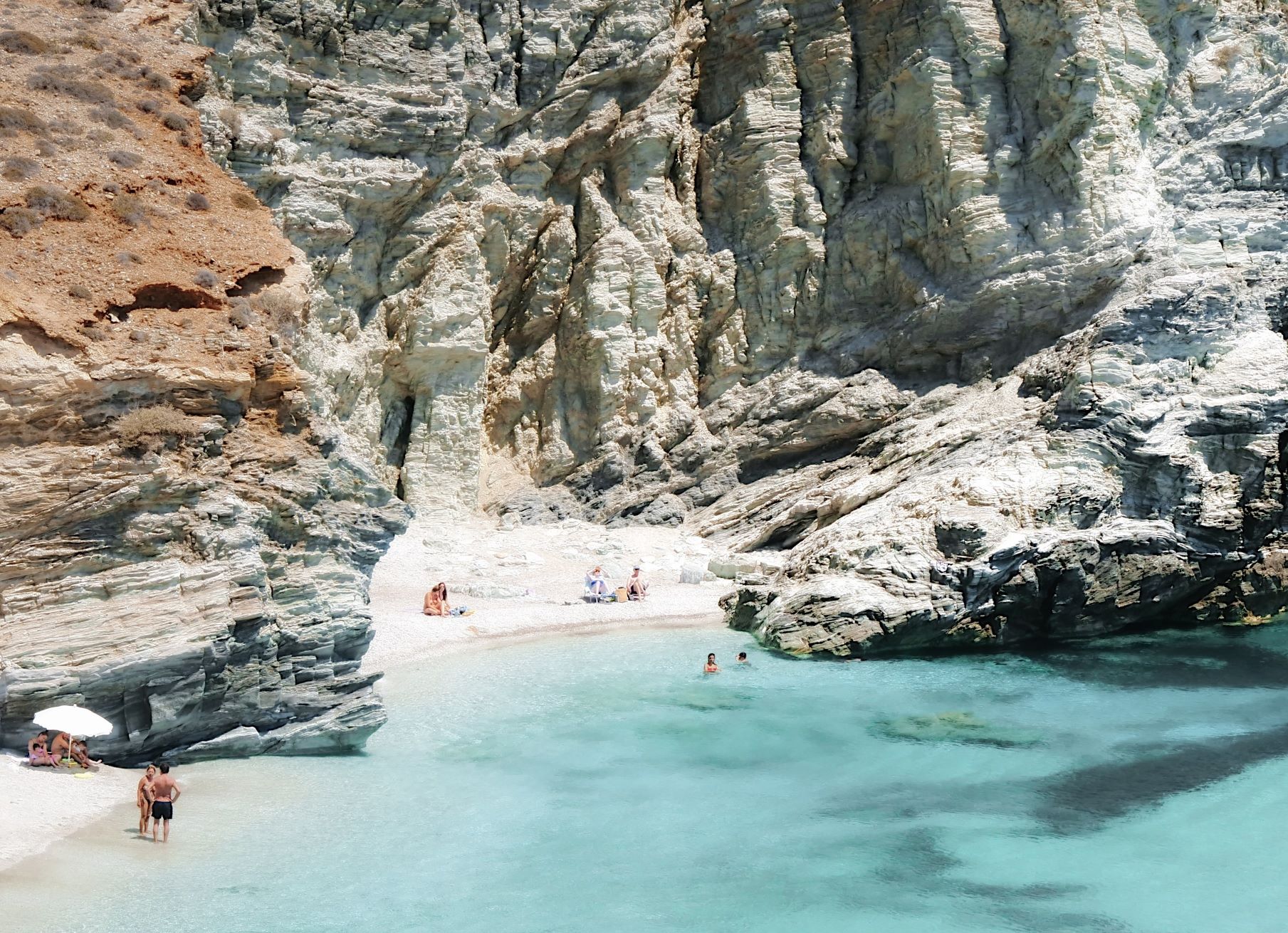
Folegandros is one of those gems, the pace of life there is slower; there are small, unsophisticated restaurants and bars to discover, where local farmers still gather during the evenings, and its handful of small beaches are perfectly uncrowded.
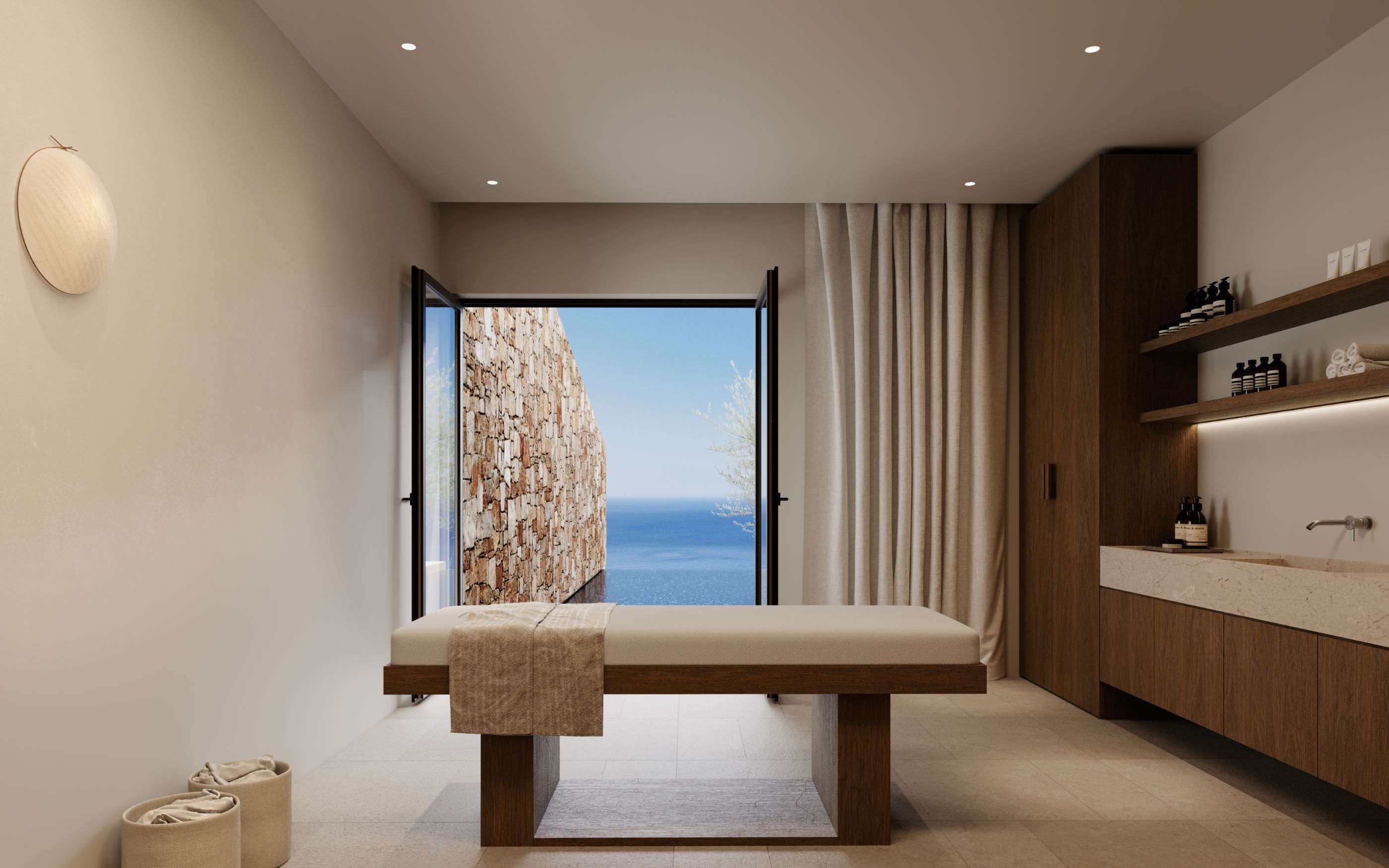
At the subterranean spa, ancient Greek rituals will convene with Folegandros’ native herbs and tonics to create a transformative wellness experience.
The spa will be a space for guests to slip into a deep relaxation with sound baths, energy healing, yoga and meditation workshops delivered by a curated selection of visiting wellness practitioners.
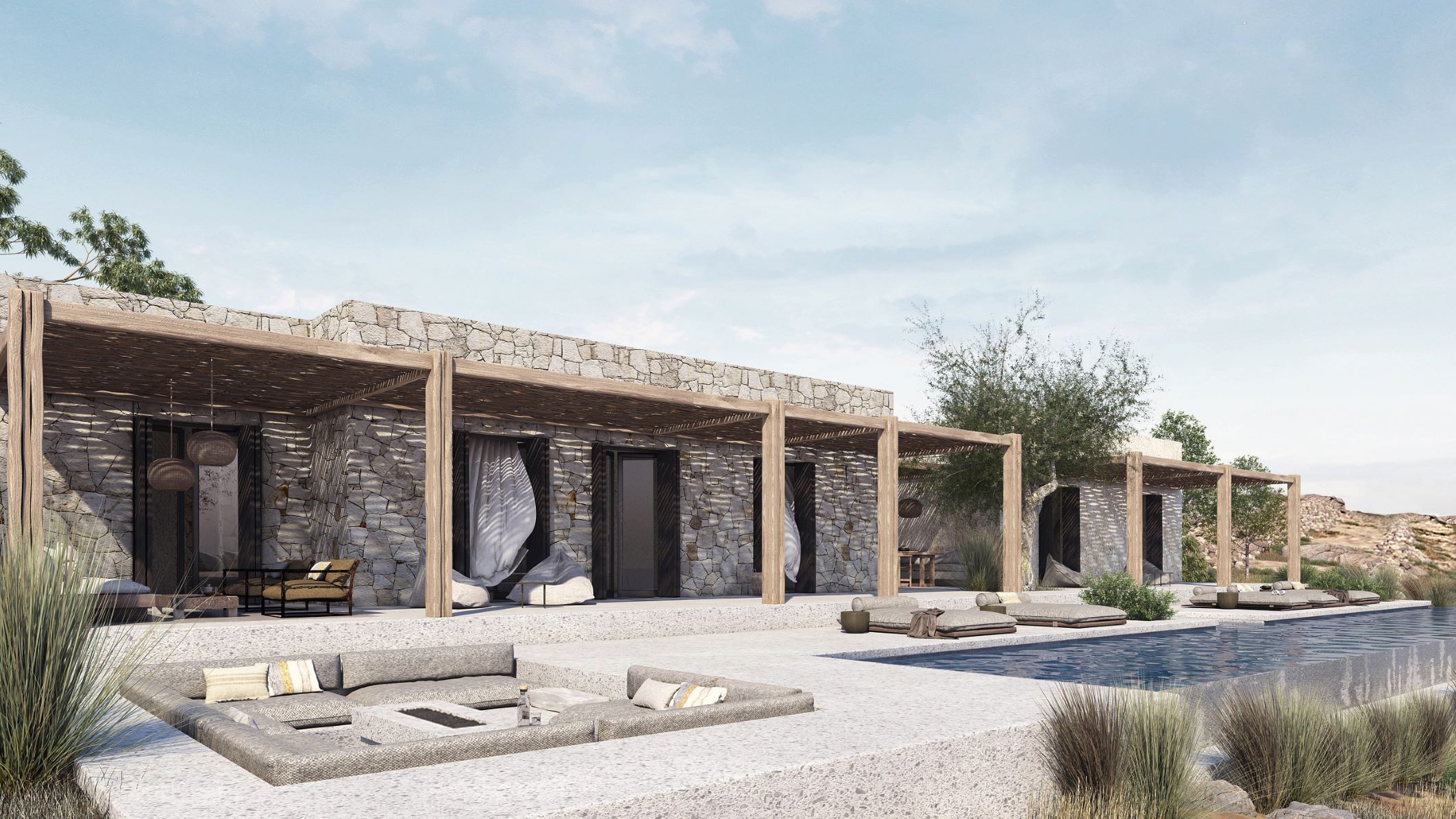
Preserving the island’s tranquillity and environment has been pivotal in every decision made by the founder and CEO, Ricardo Larriera.
Before construction even started, over six hundred seedlings were collected and nurtured, then returned to regenerate the land with indigenous plants; meanwhile all the stonework incorporated into the property’s design was created using rock excavated on-site.
Ricardo has also taken a personal stake in the threatened Eleonora’s Falcon, one of the fastest birds in the world and native to the island.
The establishment of the Gundari Elanora’s Falcon conservation project will aim to regenerate the populations to healthy levels, whilst giving guests an opportunity to be involved.
Ricardo Larriera comments on the launch of Gundari, “We will offer guests a luxurious, timeless, and unhurried escape.
“Gundari will offer a positive example to the world on how luxury and sustainability can coexist harmoniously without compromise.”
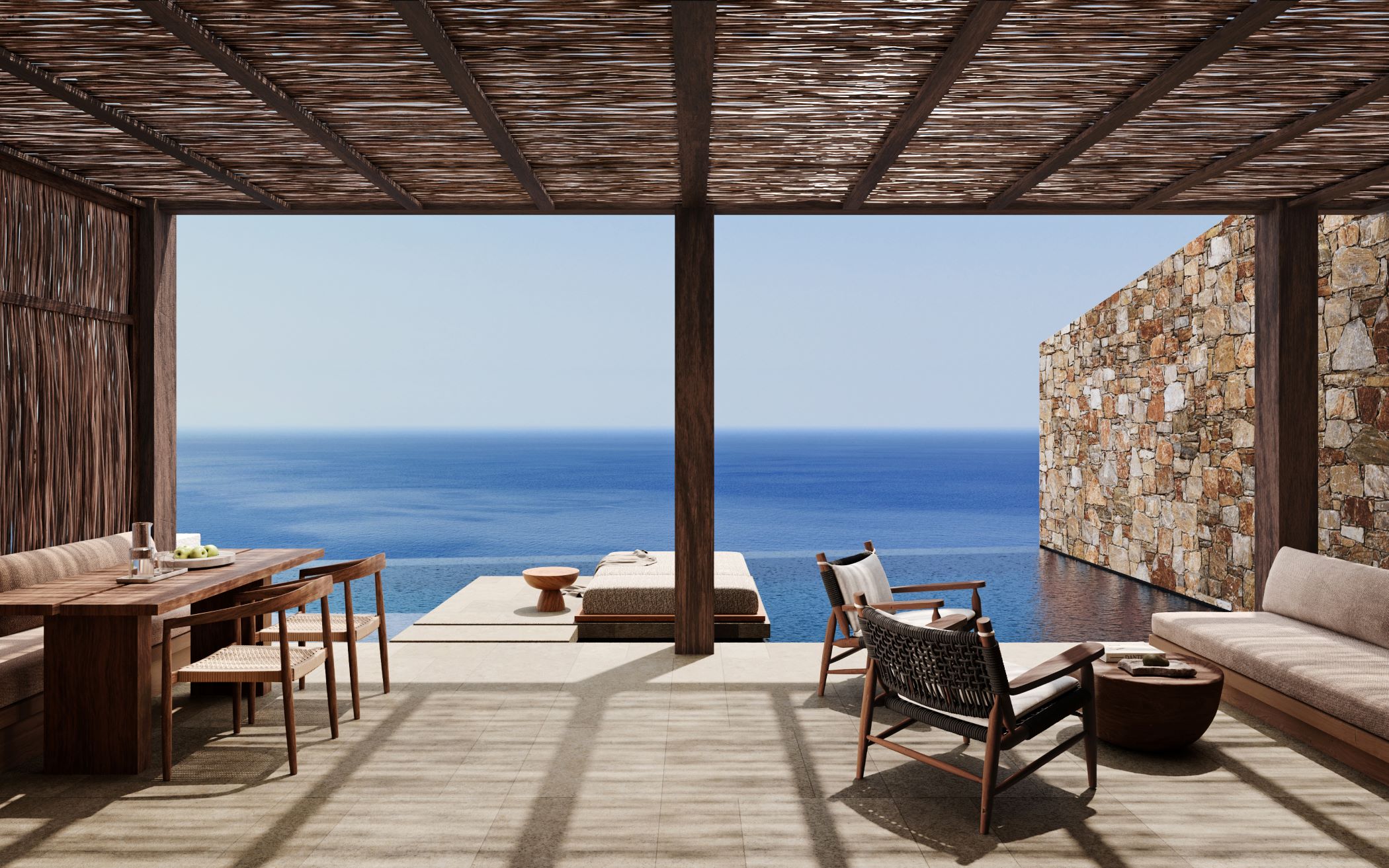
Editor’s comment
Obviously, tourism is important to all the islands in the Cyclades, but it shouldn’t be allowed to change their character or landscape more than it has already.
Slow and controlled growth is probably the answer.
And providing Gundari doesn’t set a trend for a run of new luxury hotel openings on Folegandros, then I suppose one more won’t hurt.
It is only twenty-seven more rooms on an island that already has several good small hotels (mainly based in Chora) and plenty of privately owned villa accommodations for hire dotted around the island’s coastline.
Folegandros can surely accommodate a few more guests every year.
And Ricardo Larriera is obviously the right man to oversee this, he is fully aware of the impact of tourism and is approaching this project with great sensitivity.
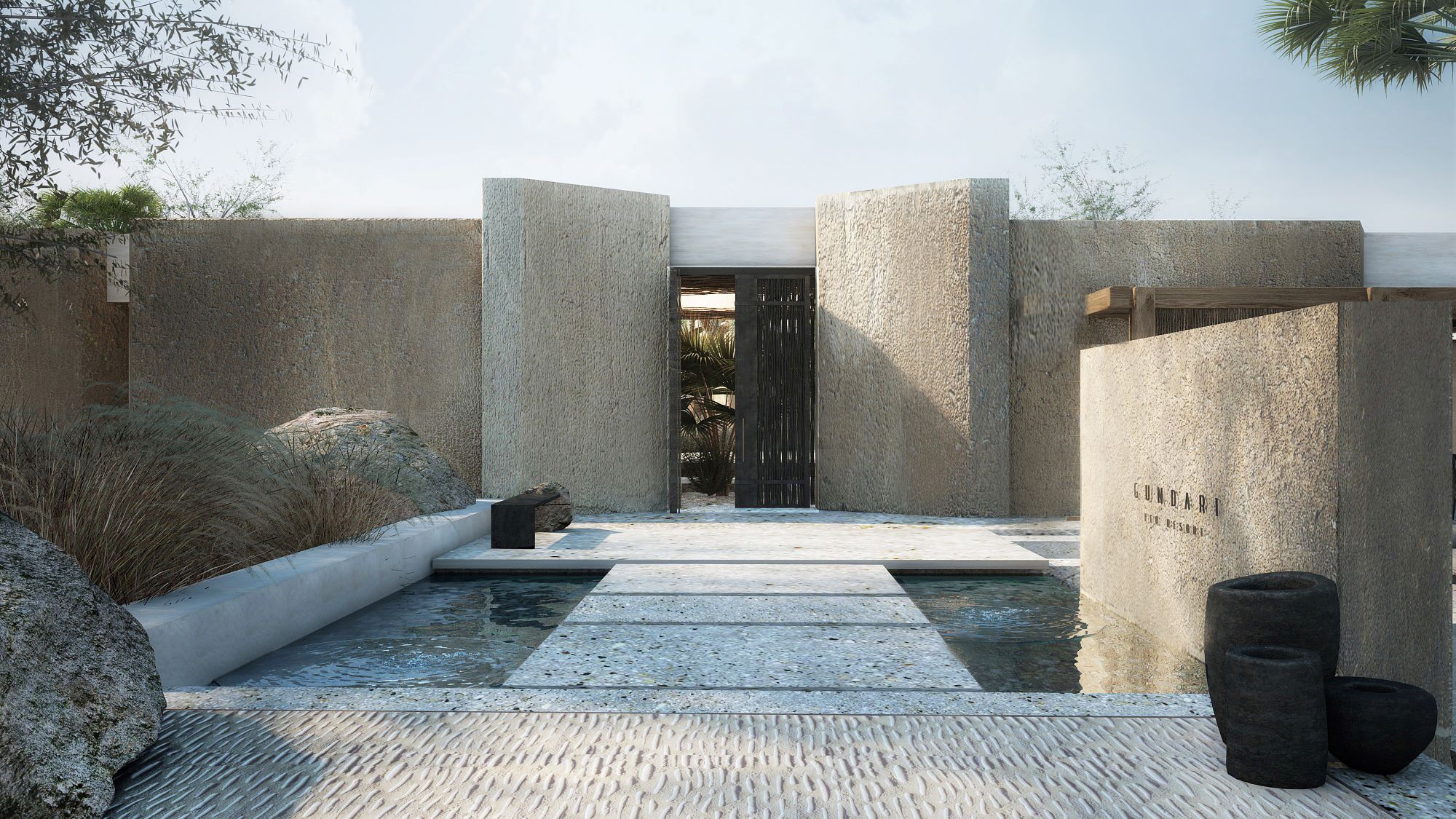
*Bioclimatic Design
Bioclimatic architecture is a low impact way of designing buildings based on the local climate, with the intention of providing thermal comfort using existing environmental resources.
The buildings should, ideally, also blend into their natural surroundings.
Celebrated examples of bioclimatic design include the Eden Project in Cornwall, The Pearl Academy in Jaipur, and The Bullitt Center in Seattle.




